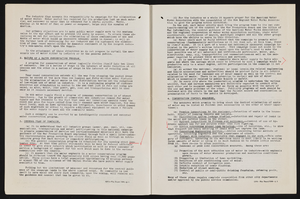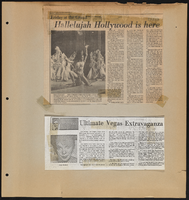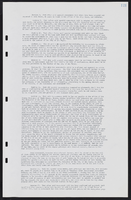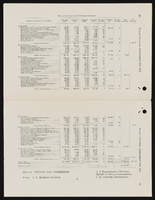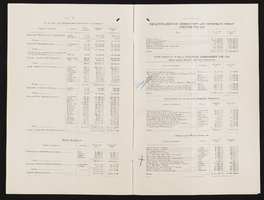Search the Special Collections and Archives Portal
Search Results

Transcript of interview with Carl F. Kelley by James M. Greene, May 2, 1972
Date
Archival Collection
Description
On May 2, 1972, James M. Greene interviewed Carl F. Kelley (born May 19th, 1922 in Ohio) about his life in Southern Nevada. The two talk about how Kelley first moved to Nevada and his original addresses. Kelley describes living in Boulder City, Las Vegas, and Henderson. The interview concludes with an in-depth discussion of the Civilian Conservation Corps activities in Boulder City, Nevada.
Text

Transcript of interview with Henry Clay Davis by Wendy Christian, March 5, 1978
Date
Archival Collection
Description
On March 5, 1978, collector Wendy Christian interviewed truck driver Henry Clay Davis (born April 19, 1900 in Irondale, Virginia) in his home in Las Vegas, Nevada. This interview covers Henry Clay Davis’s personal life history as a resident of Las Vegas, which includes hunting and fishing. He also discusses employment, the railroad, old hotels, the Davis Dam, and Lake Mead. Additionally, he offers a detailed description of the Helldorado.
Text
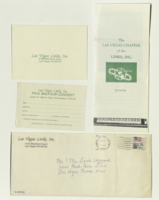
Mabel Hoggard: personal correspondence
Date
Archival Collection
Description
Folder of materials from the Mabel Hoggard Papers (MS-00565) -- Personal papers file. This folders contains correspondence from friends, family members, and various organizations. It also includes an agenda for "National Sorority of Phi Delta Kappa" from Sunday October 28, 1973.
Text

